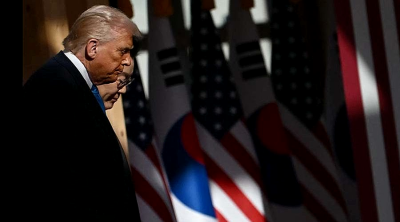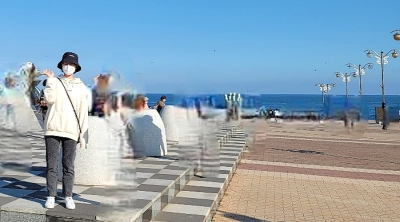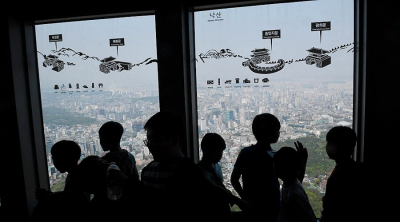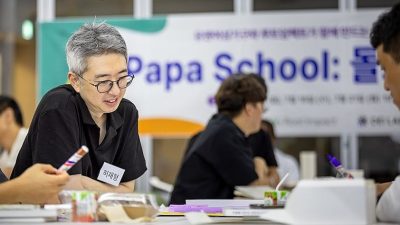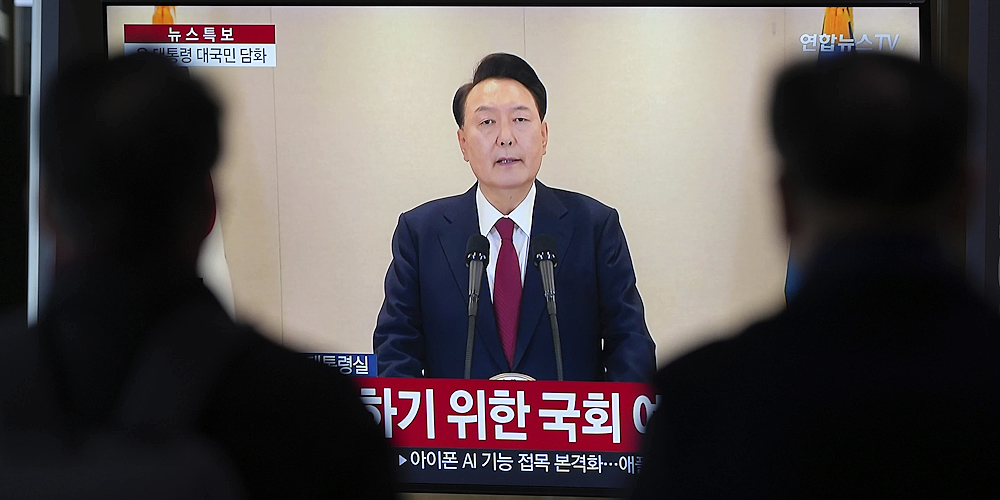
SEOUL: South Korea’s president defended his martial law decree as an act of governance and denied rebellion charges, vowing Thursday to “fight to the end” in the face of attempts to impeach him and intensifying investigations into last week’s dramatic move.
Yoon Suk Yeol’s televised statement came hours before the main liberal opposition Democratic Party submits a new impeachment motion against Yoon to put it on a floor vote this weekend.
Yoon’s Dec. 3 martial law declaration, the first of its kind in more than 40 years in South Korea, has generated political chaos and large protests calling for his ouster.
The decree brought hundreds of armed troops attempting to encircle parliament and raiding the election commission, though no major violence or injuries occurred.
Martial law lasted only six hours as Yoon was forced to lift it after the National Assembly unanimously voted it down.
Yoon, a conservative, said he enacted martial law as a warning to the main liberal opposition Democratic Party, which controls parliament.
He called the party “a monster” and “anti-state forces” that he said tried to use its legislative muscle to impeach top officials, undermined the government’s budget bill for next year and sympathised with North Korea.
“I will fight to the end to prevent the forces and criminal groups that have been responsible for paralysing the country’s government and disrupting the nation’s constitutional order from threatening the future of the Republic of Korea,” Yoon said.
Yoon said martial law was an act of governance that cannot be the subject of investigations and doesn’t amount to rebellion.
He said the deployment of nearly 300 soldiers to the National Assembly was designed to maintain order, not dissolving or paralysing it.
The Democratic Party quickly dismissed Yoon’s statement as “an expression of extreme delusion” and “a declaration of war against the people.” Kim Min-seok, head of a party task force, accused the president of attempting to incite pro-Yoon riots by far-right forces.
He said the Democratic Party will focus on getting the motion impeaching Yoon passed on Saturday.
It’s unclear how Yoon’s comments will affect his fate.
The Democratic Party and smaller opposition parties hold 192 seats combined, eight votes short of a two-thirds majority, or 200 of the 300 lawmakers, in the National Assembly.
The earlier attempt to impeach Yoon failed with most lawmakers from Yoon’s governing People Power Party boycotting the vote.
Yoon’s speech was expected to deepen a divide inside the PPP.
When party chair Han Dong-hun, a critic of Yoon, called Yoon’s statement “a confession of rebellion” during a party meeting, Yoon loyalists angrily jeered and called on Han to stop speaking.
Han has urged party members to vote in favour of Yoon’s impeachment.
Opposition parties and even some PPP members say the martial law decree was unconstitutional.
They say South Korean law allows the president to declare martial law only during wartime or similar emergencies.
They argue that deploying troops to seal the National Assembly to suspend its political activities amounted to rebellion because the constitution doesn’t give a president such rights in any situation.
Police, prosecutors and other agencies are investigating whether Yoon and others involved in imposing martial law committed rebellion, abuse of power and other crimes.
Earlier this week, the Justice Ministry banned Yoon from leaving the country, but it’s still unclear if they would be able to detain or arrest him. A conviction for rebellion carries a maximum penalty of death.
South Korean law gives a president immunity from prosecution while in office, except for allegations of rebellion or treason.
This means that Yoon can be questioned and detained by investigative agencies over his martial law decree, but many observers doubt that authorities will forcefully detain him because of the potential for clashes with his presidential security service.
On Wednesday, Yoon’s presidential security service didn’t allow police to search the presidential office.
Yoon’s statement was seen as an about-face. Last Saturday, Yoon apologised over declaring martial law, saying that he won’t avoid responsibility for it.
He said he would leave it to his party to chart a course through the political turmoil, “including matters related to my term in office.”
On Wednesday, Yoon’s former defence minister, Kim Yong Hyun, was arrested on allegations of playing a key role in a rebellion and committing abuse of power.
The national police chief and the head of Seoul’s metropolitan police have been detained while their actions of sending police forces to the National Assembly are investigated as a criminal matter.
Kim, who resigned after martial law was lifted, is one of Yoon’s close associates.
He has been accused of recommending martial law to Yoon and sending troops to the National Assembly to block lawmakers from voting on it.
He tried to kill himself in detention, but correctional officers stopped him and he was in stable condition, according to the Justice Ministry.
In his speech Thursday, Yoon said he had discussed imposing martial law only with Kim before he informed other top officials about it at a Cabinet meeting just before its declaration.
On the night of Dec. 3, besides the National Assembly, Yoon and Kim sent troops to the National Election Commission.
That raised speculation that he might have tried to seize computer servers at the commission as he believed unfounded rumours that the results of April’s parliamentary elections, in which his party suffered steep losses, were rigged.
Yoon said he asked Kim to examine the supposed vulnerabilities of the commission’s computer systems, which Yoon said was hampering the credibility of election results.
He accused the commission of resisting a thorough inspection by Seoul’s spy agency following a cyberattack attributed to North Korea-backed hackers last year.
If Yoon is impeached, his presidential powers would be suspended until the Constitutional Court decides whether to remove him from office or retore his powers.
If he is dismissed, a new presidential election would be required within 60 days.
ADVERTISEMENT
ADVERTISEMENT






